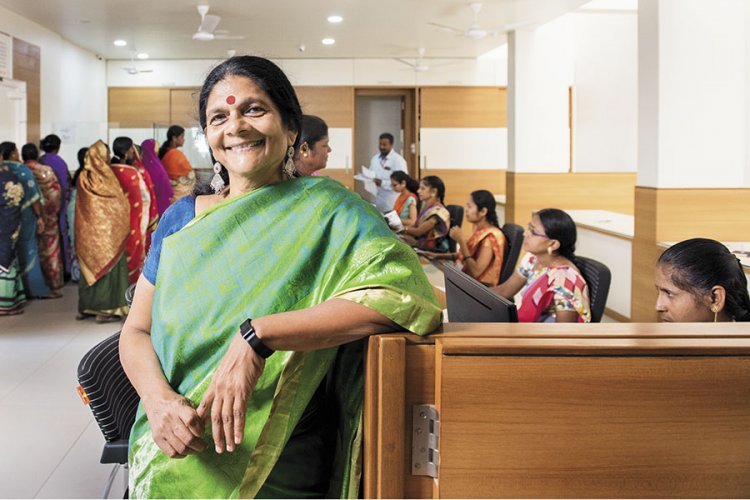Chetna Gala Sinha is banking on her potential. Chetna Gala Sinha's story is one of real grit, modesty, and the strength of compassion, from philanthropy to altering the face of business for women in rural India.
THE BANK WAS ESTABLISHED BY WOMEN FOR WOMEN. IT ALL BEGAN WITH A HUGE ''NO''.
Some individuals are overwhelmed by injustice and feel powerless to intervene. Chetna Gala Sinha, on the other hand, is not one of them. Prior to actually establishing Mann Deshi Bank, India's first women's cooperative bank, in 1997, she advocated for drought-stricken farmers in rural Maharashtra during India's "crisis" years in the mid-1970s. Flash forward a few decades, and the Mann Deshi Foundation now serves as the shelter organisation for the country's first business school for women, a female-led radio broadcasting program, and a number of other programs.was born and nurtured in Mumbai, a busy metropolitan where a flame of action and social change was sparked at a young age.
How was the bank started?
Kantabai, a welder who worked and lived on the street in Mhaswad, rural Maharashtra, approached the founder, Chetna Sinha, in 1997, and the Mann Deshi Mahila Sahakari Bank was established. She told a terrible story of being turned down by multiple banks when she sought to create an account. Kantabai just desired a safe refuge in which to accumulate money in order to purchase tarpaulin sheets to cover her home during the rainstorms. Chetna made the decision to open a bank for women like Kantabai. 1335 women pooled their resources (7.8 lakhs) to establish India's first bank for and by rural women. It continues to be a member-driven and member-owned bank.
While the Bank was founded as a safe place for rural women to save money, they have expanded and changed through time. The priority has been on assisting women in gaining financial independence and increasing their earnings. They were among the first banks to aim to provide doorstep banking, electronic passbooks, micro-enterprise loans, and insurance plans. They routinely create and pioneer low-interest financing options for women. They additionally collaborate closely with the Mann Deshi Foundation to help women's businesses to develop and thrive. Entrepreneurs seeking working capital loans from the Bank are directed to the Foundation's Business Schools for extra business help and coaching. Similarly, graduates of business schools are given loans by the bank to start and develop their businesses. They are currently focused on enabling women to comprehend, access, and feel confident with cashless banking. They are preparing to offer agent-based real-time online banking services inaccessible places, ensuring that women entrepreneurs benefit through technology.
In the midst of demonetisation
When demonetisation was announced in November 2017, it was apparent that thousands of their clients would be unable to utilise Rs. 2,000 notes. These are micro-entrepreneurs who work out of weekly marketplaces and deal in considerably smaller sums. A quick solution was necessary. Several state banks have substantial coin reserves. They went to the nearest State Bank of India branch and got their change. The local employees then worked tirelessly to create and distribute pouches worth Rs. 500, as well as to transform the Business School on Wheels bus into a Bank on a Bus. This project benefitted over 5000 individuals from six weekly marketplaces. Thousands of women sellers from several village weekly markets use the present cash flow facility to increase their working capital by obtaining a loan in the morning and repaying a portion of it in the evening. Given that there are 30,000 weekly markets around the country, there is immense potential.
Chetna's Mantra
Discover Your Power Words and Use Them to Help Others says Chetna. Sinha's five victorious attitude elements are five words: passion, patience, persistence, listening, and humility. She can't get the term out of her head. The women who establish companies here face a hostile environment. “As a result, building a supportive framework on which people can rely and sticking by them is essential. It is necessary to develop bravery and confidence in them in order for them to succeed.” Women own property, expertise, and financial wealth. If women own all of them, their power will unlimited. Keeping inspired under adversity is a difficult task. Sinha accomplishes this by looking forwards.
“To tell you the truth,” she says, “my biggest inspirations are the young girls and women around me.” The way they conquer each obstacle that gets in their way inspires me to keep going and find answers.








